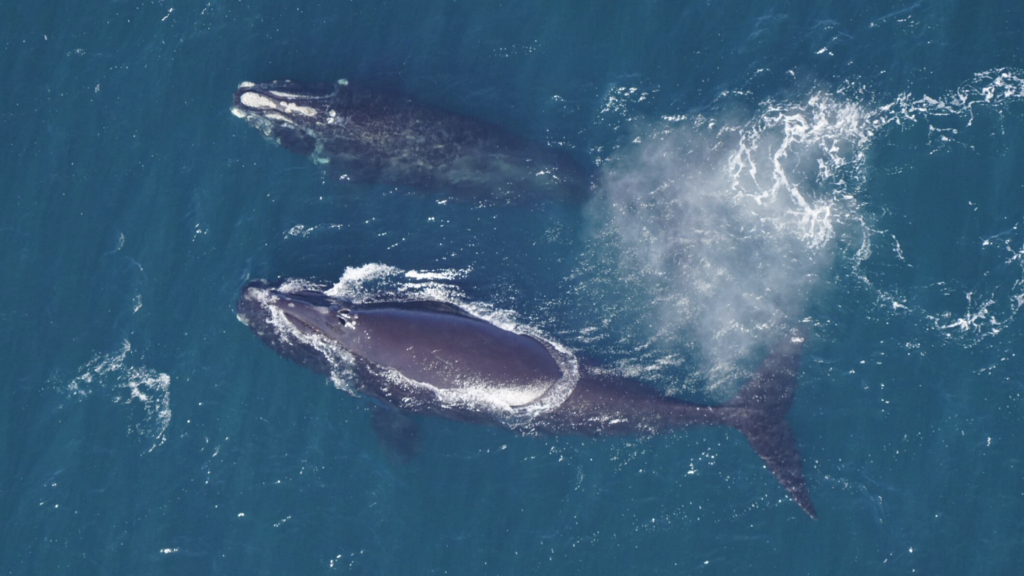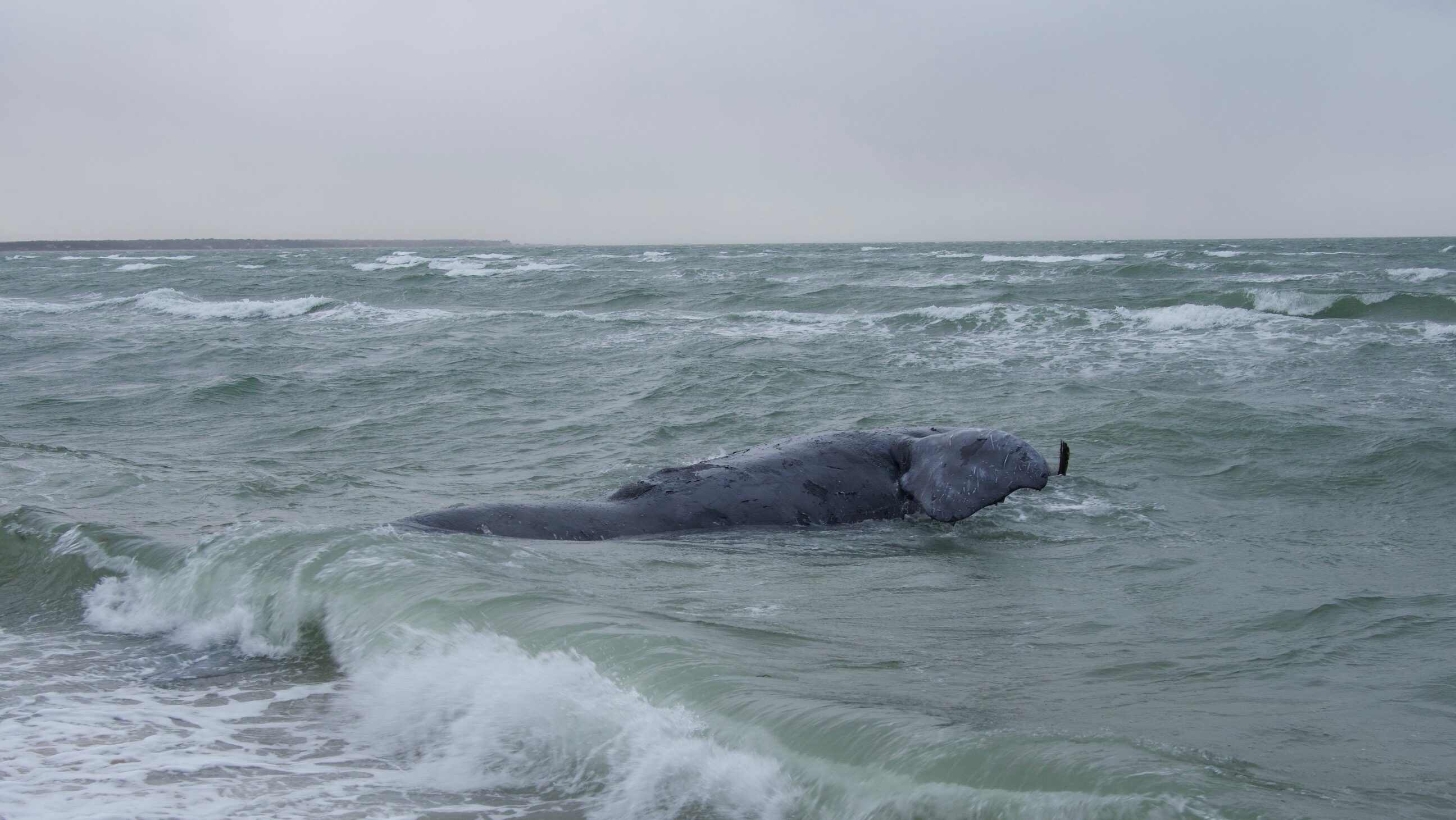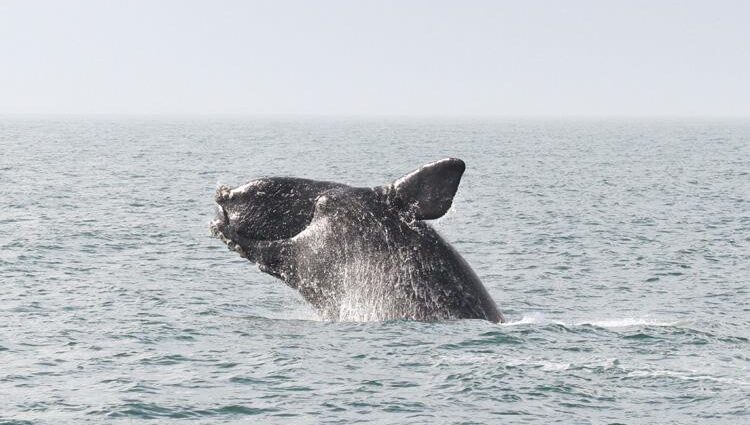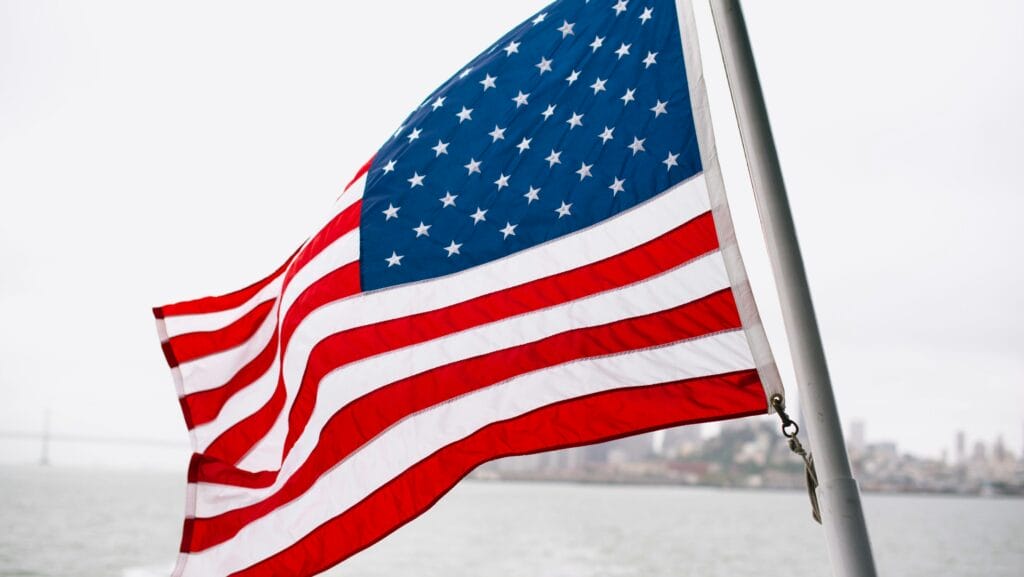Elation and frustration as NOAA withdraws controversial North Atlantic whale speed rule

The National Oceanic and Atmospheric Administration (NOAA), through its National Marine Fisheries Service (NMFS), has withdrawn a proposed rule aimed at amending vessel speed regulations to protect the highly endangered North Atlantic right whale. The decision concludes a two-year bureaucratic process fraught with controversy.
Initially published on 1 August 2022, the proposed regulation aimed to address the risks posed by vessel collisions among the species. North Atlantic right whales are slow, swimming around 6 miles per hour, usually near the water’s surface. They are also dark in colour and lack a dorsal fin, making them very difficult to spot from a boat.
The North Atlantic right whale is at risk of extinction, with only around 370 whales remaining, including about 70 reproductively active females.
The decision to withdraw the proposed speed restrictions is a victory for marine industry stakeholders, including the National Marine Manufacturers Association (NMMA), the largest trade association representing the marine industry in North America, which had lobbied hard against the proposal, arguing that it held no ‘significant benefit’ for marine conservation, and stood to cause ‘widespread economic harm’.
“This is a huge step forward for American boat manufacturers, coastal economies, and outdoor enthusiasts across the U.S.,” says Frank Hugelmeyer, president and CEO of the NMMA. “The way this rule was drafted gave rulemaking a bad name and created an entirely preventable dynamic. Coastal communities are part of the fabric of this nation, and their livelihoods should never be put at risk by the federal government.”
The proposed rule sought to expand the size class of vessels subject to speed restrictions, meaning all boats 35ft and greater would have been limited to 10 knots (11 mph) within a vast area extending from Massachusetts to central Florida for up to seven months of the year and, in some places, up to 90 miles offshore.
“As we’ve said all along, NOAA’s proposed rule relied on incorrect assumptions and questionable data, and failed to distinguish between large, ocean-crossing vessels and small recreational boats, which could not be more different from each other,” says Hugelmeyer. “Most concerning, the proposed rule completely ignored the advanced marine technologies available now that can best protect the North Atlantic right whale and prevent vessel strikes. The rule’s many blind spots would have created dire consequences for boater safety and accessibility, the economic vitality of coastal communities and marine manufacturers, and the livelihoods of countless supporting small businesses, all while undermining years of progress in marine conservation.”
NMFS received approximately 90,000 public comments on the proposal. The decision had already been delayed once, from 2023 to 2024, as the NOAA processed a large volume of feedback. According to the agency, addressing the scope and volume of feedback has not been feasible within the current administration’s timeframe, with the Biden era coming to an end.
As a result, the rule is being withdrawn, with NMFS stating: “NMFS hereby withdraws the August 2022 proposed rule and terminates this rulemaking proceeding.” The agency confirms that existing vessel speed regulations, codified under 50 CFR 224.105, will remain in effect.

While the proposed rule has been withdrawn, NMFS emphasises that this decision does not preclude future action. The agency notes it may initiate a new rulemaking process to address the ongoing risk of vessel strikes. Should this occur, it will be conducted in compliance with the Administrative Procedure Act. The notice, issued on 8 January 2025, is scheduled for publication in the Federal Register today (16 January 2025.)
However, the news has been met with dismay by marine conservation activists who supported the proposed rule.
“Bureaucracy at its finest,” Oceana Campaign director Gib Brogan says. “While we waited over two years for a decision on the vessel strike reduction rule, our East Coast has become a graveyard for North Atlantic right whales. North Atlantic right whales don’t belong on our beaches, and they don’t deserve to die because of political incompetence and a blatant disregard for science-backed solutions.
“We hate to state the obvious but, we need a solution, and we need it now. It’s our sincere hope that the new administration does not want the first large whale to go extinct in centuries in U.S. waters because of federal red tape. The Trump administration must find a solution that keeps fisheries on the water, sustains the marine economy, and supports the recovery of the North Atlantic right whale.”
Jeff Angers, president of the Center for Sportfishing Policy (CSP), supported the withdrawal but echoed Brogan’s dismay at the slow pace of the decision.
“We are hopeful NOAA will join with us to develop a durable, practical approach to this critical issue,” says Angers. “But it is noteworthy that NOAA’s withdrawal notice today highlighted only the administration’s time running out without acknowledging the numerous flaws in their approach. NOAA can do better, and we expect more from America’s science agency.
“We strongly encourage the federal government to work alongside stakeholders on a science-driven plan that genuinely protects the NARW, supports the sustainability of our oceans, and ensures public access to America’s public waters.”














invent a sonic or similar deterrent for the vessels